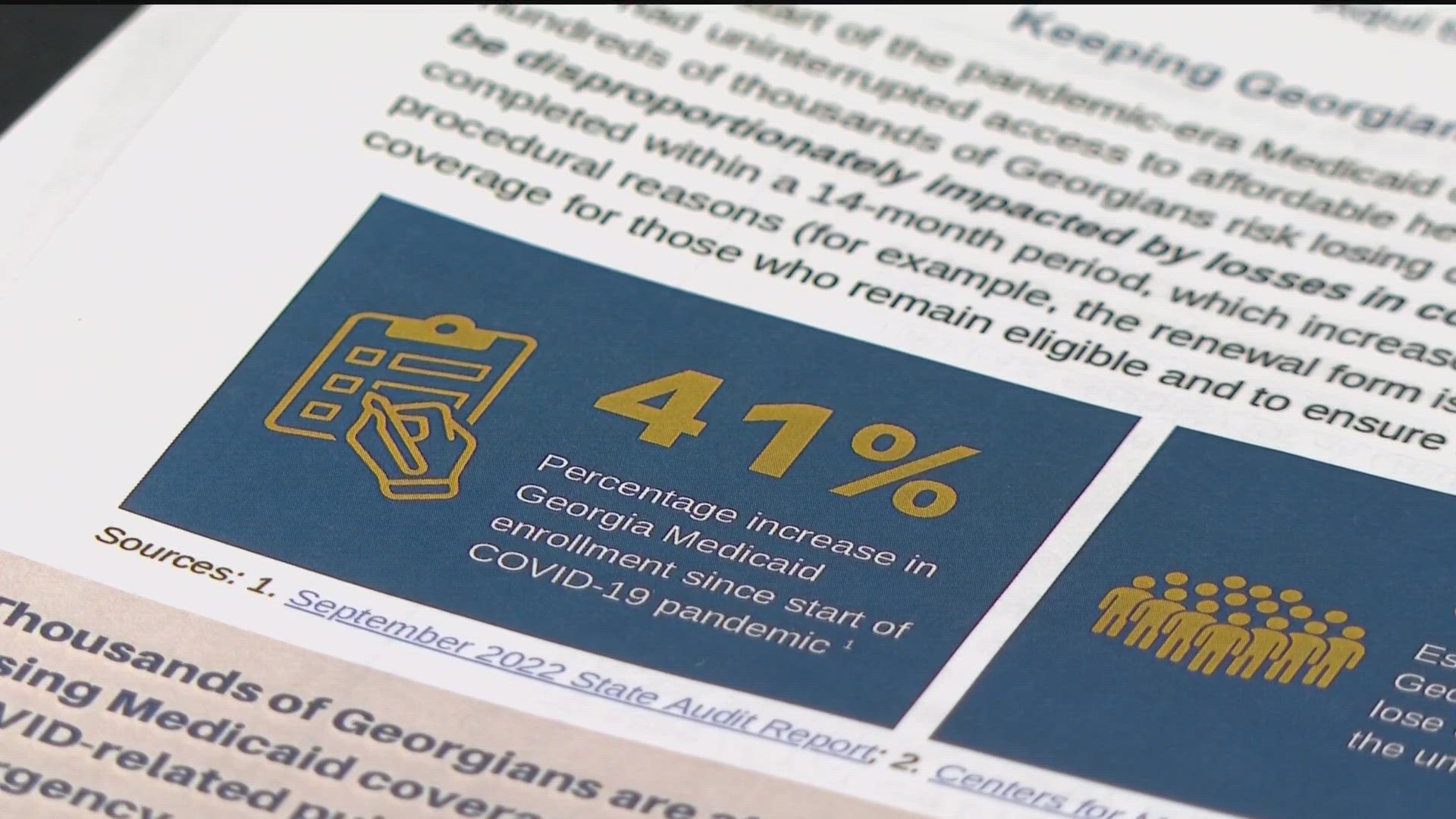ATLANTA — Starting in April, if you're on Medicaid or PeachCare, the state will be determining if you and you and your children are eligible for coverage.
With only a few days before the renewal process starts, the Georgia Budget and Policy Institute (GBPI) and the Latin American Association are sharing tips on how to maintain your coverage.
David Schaefer is the Vice President of Research and Policy with the GBPI. He says people of color will be disproportionately affected by this.
Schaefer calls it a Medicaid unwinding. Early in the pandemic, federal lawmakers passed a law stopping states from dropping people from Medicaid coverage. On April 1, that protection ends. This determination will happen two million times over the next 14 months, putting thousands at risk of losing coverage.
"We anticipate that as many as 500,000 people could lose coverage during this period. And it's possible they would lose coverage and not know it," Schaefer said. "We're talking about families where the primary caregiver does not speak English."
Schaefer said people who may have turned 19 or 20 during the pandemic, may have aged out of Medicaid and have become ineligible as well.
Schaefer added that for parents who are undocumented, interacting with the government can be difficult and scary. That's where the Latin American Association (LAA) comes in.
"42 percent of Hispanic children are on Medicaid. That number is even higher for individuals in the Black community," Scahefer said. "So, for people of color, this is a huge deal."
Melisa Nichols is the SNAP Program Manager at the LAA. Here's what she says is the worst-case scenario.
"If they don't get the letter to renew and they just missed the renewal, their case would be closed. And they would just reapply again," Nichols said. "And the application can be processed anywhere from 35 to 45 days."
For people like Arlette Cancado, losing Medicaid is not an option.
"I had three days in the hospital — an emergency. So, how much would this be? Out of pocket, they will bill me — it will be more...around $50,000," Schaeffer explained. "It's very important to have Medicaid. It helps a lot."
Nichols said right now, Medicaid recipients should update their personal information on Georgia Gateway — the state's assistance website. And watch out for a renewal letter.
"Make that change," Nichols said. "If you move, change your number, contact information, household, size, income, or anything like that to make sure that they reach out to DFCS (Department of Family and Children Services) or go in Gateway and create an account or check their existing account or come to a community partner where they can update that information."
Missing your opportunity could jeopardize your family's health or cause financial instability. Cancado offers this advice:
"You should get yourself informed. It's the best thing," Cancado said. "Don't wait for surprises, because things happen."
GPBI is also calling for Georgia to expand Medicaid — as our state is one of 11 states that haven't — in order to fix the coverage gap for equitable healthcare access.

